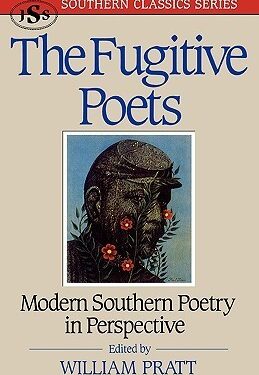The Fugitives is a Literary Movement in American Poetry
Who are the Fugitives in American literature?, What is a fugitive in poetry?, Who are the fugitive poets in Nashville?, Who were the agrarians literary group?,The Fugitives, alternatively known as the Southern Agrarians, emerged in the early 20th century as a notable literary group that left a lasting impact on American literature. Originating from Vanderbilt University in Nashville, Tennessee, this collective of poets and writers aimed to challenge prevalent literary norms and revive a sense of regional identity, particularly within the American South. This essay delves into the inception, notable figures, thematic focus, and enduring influence of the Fugitive School of Poetry in American literary history.
Origins and Formation:
The Fugitives found their beginnings in the 1920s at Vanderbilt University, where a group of young intellectuals gathered to discuss literature and cultural issues. Influenced by the agrarian values and traditional Southern ethos, these writers sought to forge a distinct literary identity that countered the tide of industrialization and urbanization sweeping the nation.
Also Read-
- Elmer Rice is a Trailblazing American Playwright
- Robert Lowell is Shaping the American Poetic Landscape
- Theodore Roethke is a Cultivating the American Poetic Landscape
Key Figures:
Among the prominent figures associated with the Fugitives were poets and writers such as John Crowe Ransom, Allen Tate, Robert Penn Warren, Donald Davidson, and Cleanth Brooks. Each member contributed their unique perspective and artistic flair, enriching the tapestry of Fugitive literature with diverse voices and perspectives.
Themes in Fugitive Poetry:
At the core of Fugitive poetry lay themes of agrarianism, regionalism, and the quest for a distinct Southern identity. Rejecting the cosmopolitanism and experimentalism of modernist poetry, the Fugitives embraced a more traditional and rooted approach to literature. Their poetry often celebrated rural life, the natural beauty of the Southern landscape, and the enduring values of community, tradition, and continuity.
Literary Declarations:
In 1922, the Fugitives published their seminal literary manifesto, “I’ll Take My Stand,” which laid out their agrarian philosophy and aesthetic principles. In this manifesto, the Fugitives advocated for a return to agrarianism as a means of preserving cultural integrity and resisting the dehumanizing effects of industrial capitalism. They championed a decentralized, agrarian society grounded in local traditions and customs.
Contributions to Poetry:
The Fugitives made significant contributions to American poetry through their exploration of language, form, and subject matter. Their poetry was characterized by its meticulous craftsmanship, lyrical elegance, and profound engagement with the Southern milieu and heritage. Many of their poems grappled with themes of loss, nostalgia, and the tension between tradition and modernity.
Legacy and Impact:
Despite its relatively brief existence, the Fugitive movement left an indelible mark on American literature. It played a pivotal role in the Southern Renaissance, a literary revival that breathed new life into Southern literature and culture in the 20th century. The Fugitives’ emphasis on regionalism and agrarian values laid the groundwork for subsequent generations of Southern writers, including luminaries like William Faulkner, Flannery O’Connor, and Eudora Welty.
Moreover, the Fugitives’ critique of modernity and industrialization foreshadowed broader cultural and intellectual movements, such as environmentalism and the back-to-the-land movement of the 1960s and 1970s. Their steadfast commitment to preserving local traditions and safeguarding the natural environment remains relevant in today’s era of globalization and ecological awareness.
Conclusion
The Fugitives, also known as the Southern Agrarians, left an indelible mark on American literature through their distinctive poetic movement. Emerging in the early 20th century from Vanderbilt University, this group of writers sought to counter prevailing literary trends and revive a sense of regional identity, particularly in the American South.The Fugitives is a Literary Movement in American Poetry
Their poetry, characterized by themes of agrarianism, regionalism, and a quest for Southern identity, challenged the dominant modernist ethos of the time. Through seminal works like “I’ll Take My Stand” and contributions from notable figures such as John Crowe Ransom, Allen Tate, and Robert Penn Warren, the Fugitives forged a lasting legacy that continues to influence American literature to this day.
FAQs
1. Who were the key figures associated with the Fugitives?
The Fugitives included notable poets and writers such as John Crowe Ransom, Allen Tate, Robert Penn Warren, Donald Davidson, and Cleanth Brooks, among others.
2. What were some of the themes explored in Fugitive poetry?
Fugitive poetry often focused on themes of agrarianism, regionalism, Southern identity, and a critique of modernity and industrialization.
3. What was the significance of the “I’ll Take My Stand” manifesto?
“I’ll Take My Stand” was a seminal literary manifesto published by the Fugitives in 1922. It articulated their agrarian philosophy and aesthetic principles, advocating for a return to agrarian values and a decentralized, rural way of life.
4. How did the Fugitives influence American literature?
The Fugitives played a significant role in the Southern Renaissance, a literary revival that revitalized Southern literature and culture in the 20th century. Their emphasis on regionalism and agrarian values paved the way for subsequent generations of Southern writers.
5. What is the legacy of the Fugitives in American literature?
The Fugitives left a lasting legacy in American literature through their commitment to preserving regional identity and cultural heritage. Their poetry continues to inspire writers and readers alike, serving as a poignant reminder of the enduring power of literature to shape our understanding of place and belonging.
6. How did the Fugitives critique modernity and industrialization?
The Fugitives rejected the cosmopolitanism and experimentalism of modernist poetry, advocating instead for a return to agrarian values and a decentralized, rural way of life. They saw industrialization as a threat to cultural integrity and sought to preserve local traditions and customs.
7. What broader cultural and intellectual movements did the Fugitives anticipate?
The Fugitives’ critique of modernity and industrialization foreshadowed broader cultural and intellectual movements, such as environmentalism and the back-to-the-land movement of the 1960s and 1970s. Their commitment to preserving local traditions and protecting the natural environment remains relevant in today’s era of globalization and ecological awareness.













